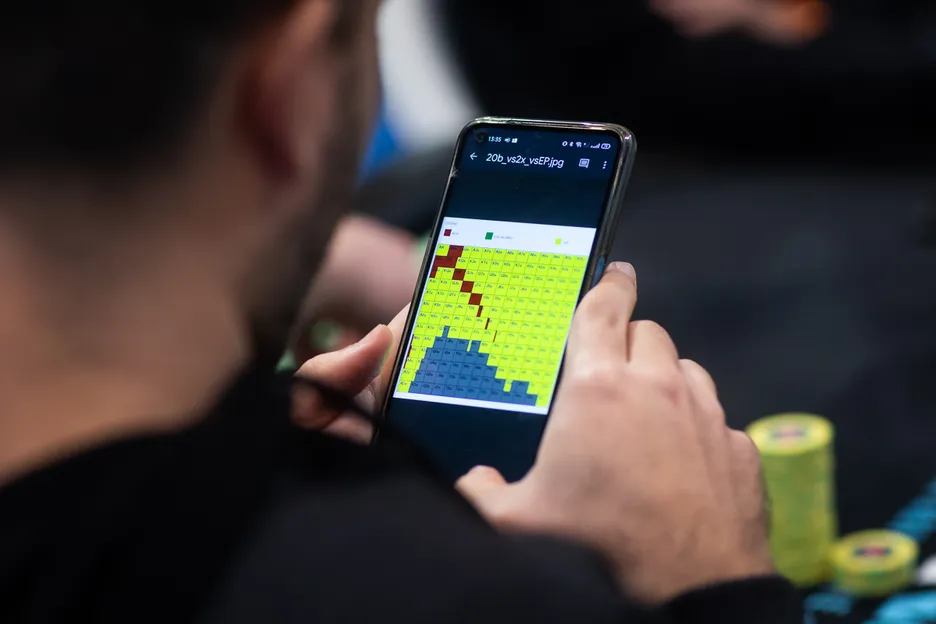The poker industry has evolved in ways that few could have imagined over the last two decades. The biggest and most popular stars of the game were once the standouts with giant personalities who emerged from smokey rooms and onto the terrestrial TV airwaves. The new poker stars of today are often forged on the internet — online poker streamers, vloggers who track their own hands and film live at the table.
Emerging technology has allowed for these players to connect directly to their audiences, and yet, just as in every other facet of life where new technology and opportunity rise, so rises a group looking to exploit any cracks in the system. Poker has been in a perpetual fight against cheating since its earliest days, from teams working together, to marked decks, to more modern online poker incidents and dozens of other ways the game's vulnerabilities have been manipulated for illicit financial gain.
A lot of those concerns came to the forefront in August of last year when Matt Berkey dedicated an entire episode of the Only Friends podcast to shining light on a series of cheating scandals and allegations of misdeeds all over the poker world in the aftermath of the arrest of two table game gamblers in France for utilizing miniaturized camera technology.
As such incidents and cheating efforts are exposed and more people are tempted to utilize them, operators face steeper challenges to ensure game security. There have been clear efforts to combat such cheating across the industry, and perhaps nowhere has it been as public an endeavor than it has at Wynn Las Vegas.
Taking electronics out of play
"In 2024, we implemented several measures and really tried to tackle the issues that were posing a challenge to the industry but weren’t really being formally addressed at scale," said Ryan Beauregard, Executive Director of Poker Operations at Wynn Las Vegas. "I think a lot of rooms, including us, had many 'soft' rules but we wanted to define them for the players so everyone could be on the same page."
For players taking part in tournaments at Wynn Las Vegas in recent months, that manifested in one specific change across the board that left players on level ground — no cell phone use at the table and no headphones from three tables down to the end of an event.
"We made the decision to remove all electronic devices, including phones and headphones, when a tournament reaches the final three tables," said Beauregard. "With voice-to-text and other concerns around electronics, this was a reasonable middle ground to add an extra level of game protection."
Taking those devices out of play seems like an obvious tool to combat potential cheating efforts on a broad scope. But some poker players are rarely seen without their headphones outside of major final table settings, and idly scrolling between hands seems almost second nature.
"We also explicitly banned any form of electronic glasses and gave ourselves the option to issue severe penalties up to and including disqualification. I never want to disqualify someone from an event, but at this stage of the game everyone should know better, even if the glasses aren’t 'turned on.'"
Complaining, especially for tournament poker players, has become something of a pastime for issues large and small. And yet, in light of the current environment, there haven't been many challenges raised since Wynn Las Vegas implemented the change.
"It has been very smooth," said Beauregard. "We are at the point where players understand there are threats that likely didn’t exist just a few years ago, and they are willing to sacrifice a few hours of scrolling or music to ensure a level playing field."
Constant vigilance across the board
Tiny cameras are far from the only issue at hand when it comes to game integrity in poker in 2025. There were strong reactions throughout the poker world during the final table of the 2024 World Series of Poker Main Event when Jonathan Tamayo's rail had laptops out and offered advice between hands.
While no evidence of wrongdoing was found in Tamayo's case, Beauregard wanted to send a clear message for future tournaments at Wynn.
"We started with a hard line against solvers in and around the tournament area," said Beauregard. "We also addressed it for spectators, which mostly applies to final tables. It was important to put this in writing because I wanted players to know that coaching in between hands wasn’t allowed."
Trying to stay ahead of the game
It can feel as though there's a new controversy du jour in poker every month, and it's up to operators to determine which issues demand immediate action, which deserve future consideration and what can be determined a non-threat in terms of rules and rulings.
Keeping an eye on the day-to-day events in poker and knowing how to filter out the noise is an important element of maintaining the right balance.
"Generally, there is a period when something that has been on our radar might become a topic or debate in the poker world," said Beauregard. "Inevitably, we will then see an increase of that action as it becomes more mainstream. If I think it poses a risk to the player experience or fairness of the game, we will evaluate and formulate a rule or solution.
"I’m not a big fan of 'more rules,' but I want to take action when the consequence of doing nothing could be harmful to game integrity, player experience or growth of the game. Poker has been moving in the right direction. My biggest fear is that we, as an industry, don’t do everything we can to protect players and the player experience, and that a lack of action could potentially reverse the positive changes and growth we have seen in the past 4-5 years."
Wynn sets the example
There is risk in being the first operator to step out and make changes and facing potential player backlash. But in their efforts to maintain their reputation as industry leaders, the brass at Wynn Las Vegas are willing to implement the rules that will offer the most secure player experience.
"No doubt that players are going to become more aware and more vocal," Beauregard said. "We have, of course, seen that over the last few weeks, as more venues institute new measures, players will adapt and may ask to implement changes at their home venues.
"It is important to me to write rules that other rooms might adopt. My hope is that putting them in play first at Wynn Las Vegas will help to reduce that barrier. Changing the status quo is never easy, especially when it comes to phones, but I’m optimistic that this is a good start."






























